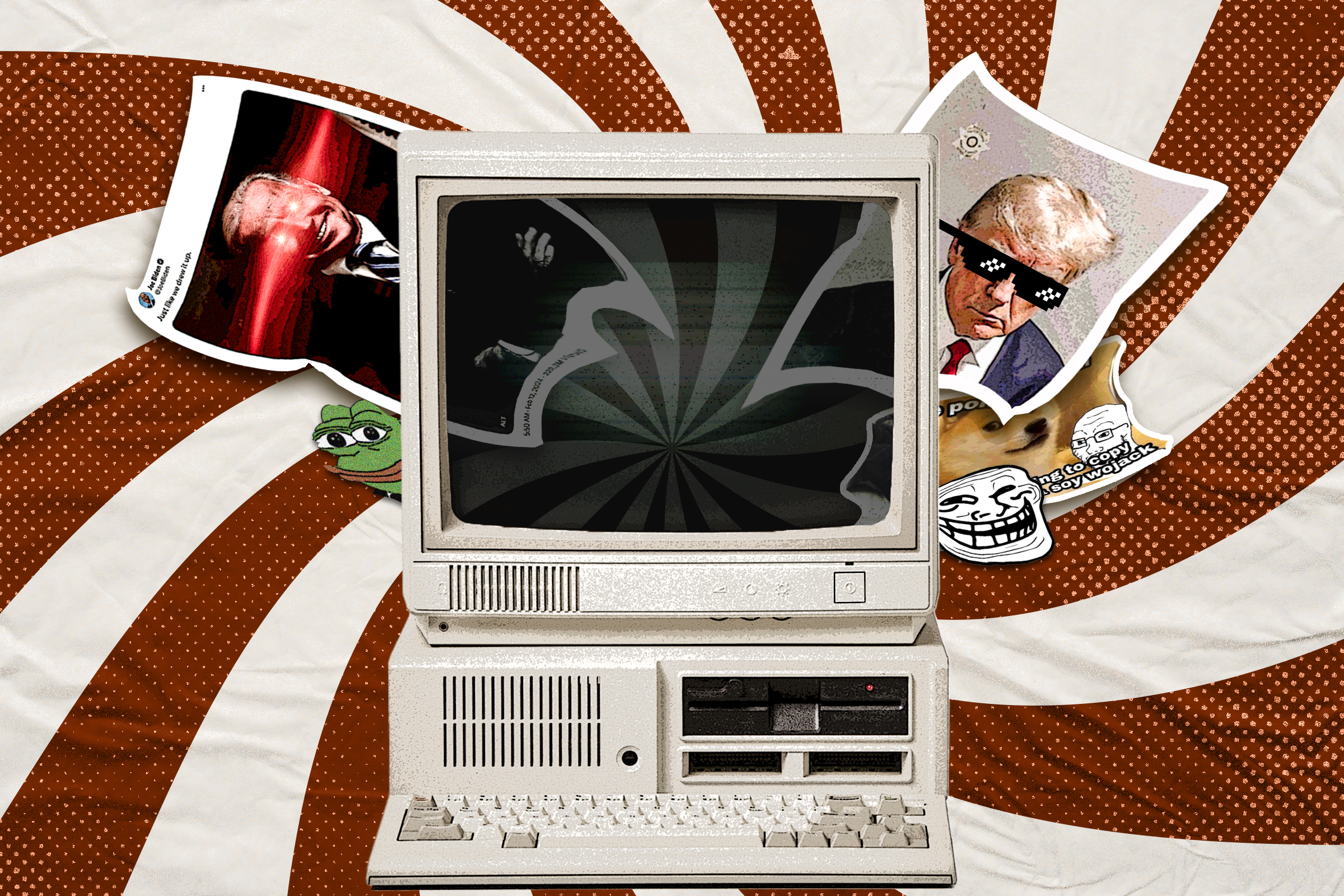Moments after more than 100 million Americans finished watching the Super Bowl, a post on President Joe Biden’s personal account on social media platform X showed an image of him smiling, his eyes emanating red beams. The Feb. 11 post read, “Just like we drew it up.”
For the uninitiated, the message seems confusing at best and scary at worst. But the picture wasn’t for them. It was designed for the online supporters and detractors of President Biden, who are already well aware of the so-called Dark Brandon meme.










